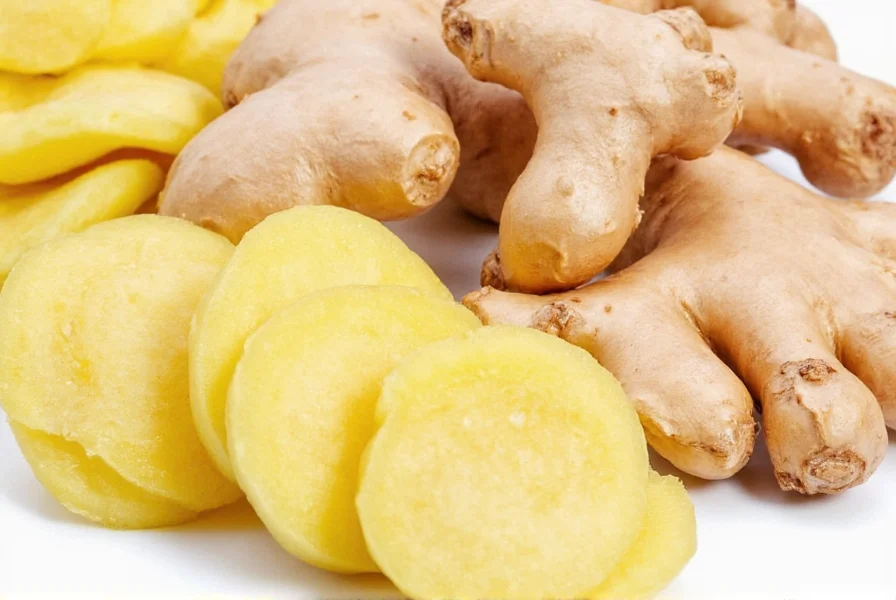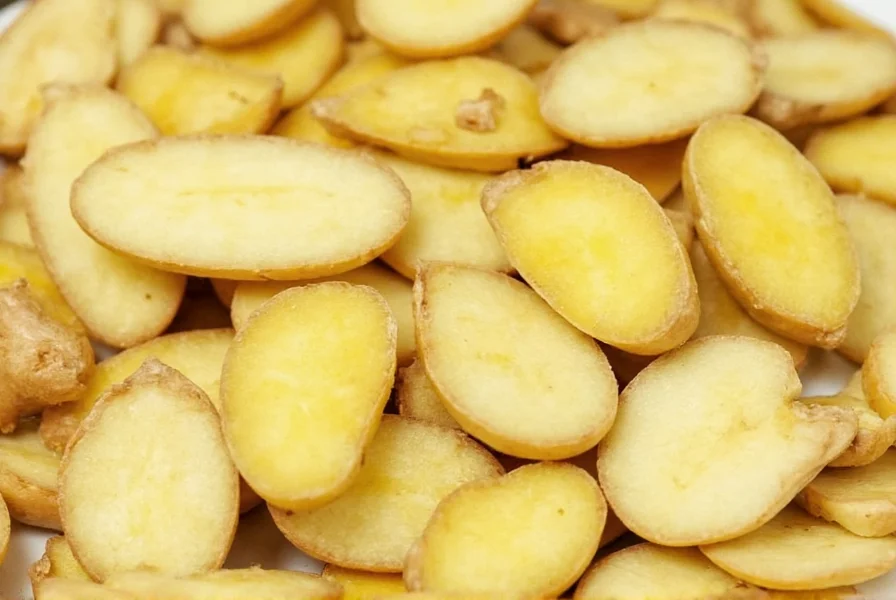Raw ginger (Zingiber officinale) has been used for centuries in traditional medicine systems worldwide. This rhizome contains bioactive compounds like gingerols and shogaols that provide distinctive flavor and potential health benefits. When consumed raw, ginger delivers maximum concentration of these compounds compared to cooked or processed forms.
Science-Backed Benefits of Consuming Raw Ginger
Multiple clinical studies validate specific health benefits associated with raw ginger consumption. Unlike many wellness trends, ginger's effects have substantial scientific backing, particularly for digestive health and inflammation management.
Digestive System Support
Raw ginger stimulates saliva, bile, and gastric enzyme production, accelerating gastric emptying. A 2020 review in Nutrients confirmed ginger's effectiveness in reducing symptoms of functional dyspepsia. Participants consuming 1.2 grams of raw ginger daily reported 30% improvement in bloating and early satiety compared to placebo.
| Health Benefit | Effective Dosage | Scientific Support Level |
|---|---|---|
| Nausea relief (pregnancy/motion sickness) | 1-1.5 grams daily | Strong clinical evidence |
| Osteoarthritis pain reduction | 500mg-1g daily | Moderate clinical evidence |
| Post-exercise muscle soreness | 2g daily | Preliminary evidence |
Nausea and Motion Sickness Management
Raw ginger's antiemetic properties make it particularly valuable for managing nausea. Research published in the American Journal of Obstetrics and Gynecology demonstrated that pregnant women consuming 1 gram of raw ginger daily experienced 50% greater nausea reduction than placebo groups. Unlike pharmaceutical options, raw ginger typically causes fewer side effects while providing comparable relief for morning sickness, chemotherapy-induced nausea, and motion sickness.

Anti-Inflammatory Effects
The gingerols in raw ginger inhibit inflammatory pathways similar to non-steroidal anti-inflammatory drugs (NSAIDs), but through different mechanisms. A 2021 study in Arthritis Research & Therapy found that participants with knee osteoarthritis consuming 1 gram of raw ginger extract daily for 12 weeks reported 40% less pain during movement compared to placebo. These effects appear strongest when ginger is consumed raw, as heat can degrade some active compounds.
Potential Risks and Side Effects of Raw Ginger
While generally safe, raw ginger consumption requires awareness of potential adverse effects, particularly at higher doses or for specific populations.
Digestive Discomfort
Consuming more than 4 grams of raw ginger daily may cause heartburn, diarrhea, or mouth irritation in sensitive individuals. The American Herbal Products Association notes that excessive raw ginger intake can exacerbate acid reflux symptoms. People with irritable bowel syndrome (IBS) should introduce raw ginger gradually, starting with 250-500mg daily to assess tolerance.
Medication Interactions
Raw ginger may interact with certain medications due to its blood-thinning properties. Individuals taking anticoagulants like warfarin should consult their physician before regular consumption. Ginger may also enhance the effects of diabetes medications, potentially causing hypoglycemia. The National Center for Complementary and Integrative Health recommends discussing ginger use with healthcare providers if taking:
- Blood thinners (warfarin, aspirin, clopidogrel)
- Diabetes medications (insulin, metformin)
- High blood pressure medications
Recommended Consumption Guidelines
For most adults, consuming 1-3 grams of raw ginger daily provides benefits without significant risk. This equals approximately:
- 1/2 to 1.5 teaspoons of freshly grated ginger
- 3-9 thin slices (about 2mm thick)
- One small thumb-sized piece (5-15g)
Timing matters for maximum benefit. Consuming raw ginger 20-30 minutes before meals optimizes digestive enzyme stimulation. For nausea prevention, take smaller amounts (250-500mg) every 4 hours as needed. Those new to raw ginger should start with 250mg daily and gradually increase over 1-2 weeks to assess tolerance.

Raw vs. Cooked Ginger: Nutritional Differences
Raw ginger contains higher concentrations of gingerols, while cooked or dried ginger develops more shogaols, which are more pungent but less studied. Research in the Journal of Agricultural and Food Chemistry shows that:
- Raw ginger has 20-30% more gingerols than cooked ginger
- Cooking converts gingerols to shogaols, increasing pungency but reducing certain anti-inflammatory properties
- Drying ginger creates zingerone, which has different antioxidant profiles
For digestive benefits and nausea relief, raw ginger generally provides superior results. For anti-inflammatory effects, both raw and cooked forms offer benefits through different mechanisms.
Practical Ways to Incorporate Raw Ginger
Adding raw ginger to your diet requires proper preparation to maximize benefits while minimizing potential irritation:
- Peeling technique: Use a spoon to scrape off the thin skin rather than a peeler, preserving more flesh
- Grating method: Freeze ginger for 30 minutes before grating for cleaner results with less fiber
- Infusion approach: Add freshly grated ginger to hot (not boiling) water for tea to preserve active compounds
- Culinary integration: Mix small amounts into salad dressings, smoothies, or vegetable juices
A simple preparation method: Peel a 1-inch piece of ginger, grate finely, and mix with 1 tablespoon honey and the juice of half a lemon. Consume 1/2 teaspoon of this mixture before meals for digestive support.
Evidence-Based Considerations
While raw ginger shows promise for several health concerns, it's essential to maintain realistic expectations based on current research:
- Most studies use standardized ginger extracts rather than raw consumption
- Long-term safety data for daily raw ginger consumption beyond 2 years is limited
- Individual responses vary significantly based on genetics and health status
- Ginger works best as part of a comprehensive health approach, not as a standalone solution
Consult healthcare providers before using raw ginger therapeutically, especially if managing chronic conditions or taking medications. While generally safe as a food, therapeutic use requires professional guidance.











 浙公网安备
33010002000092号
浙公网安备
33010002000092号 浙B2-20120091-4
浙B2-20120091-4